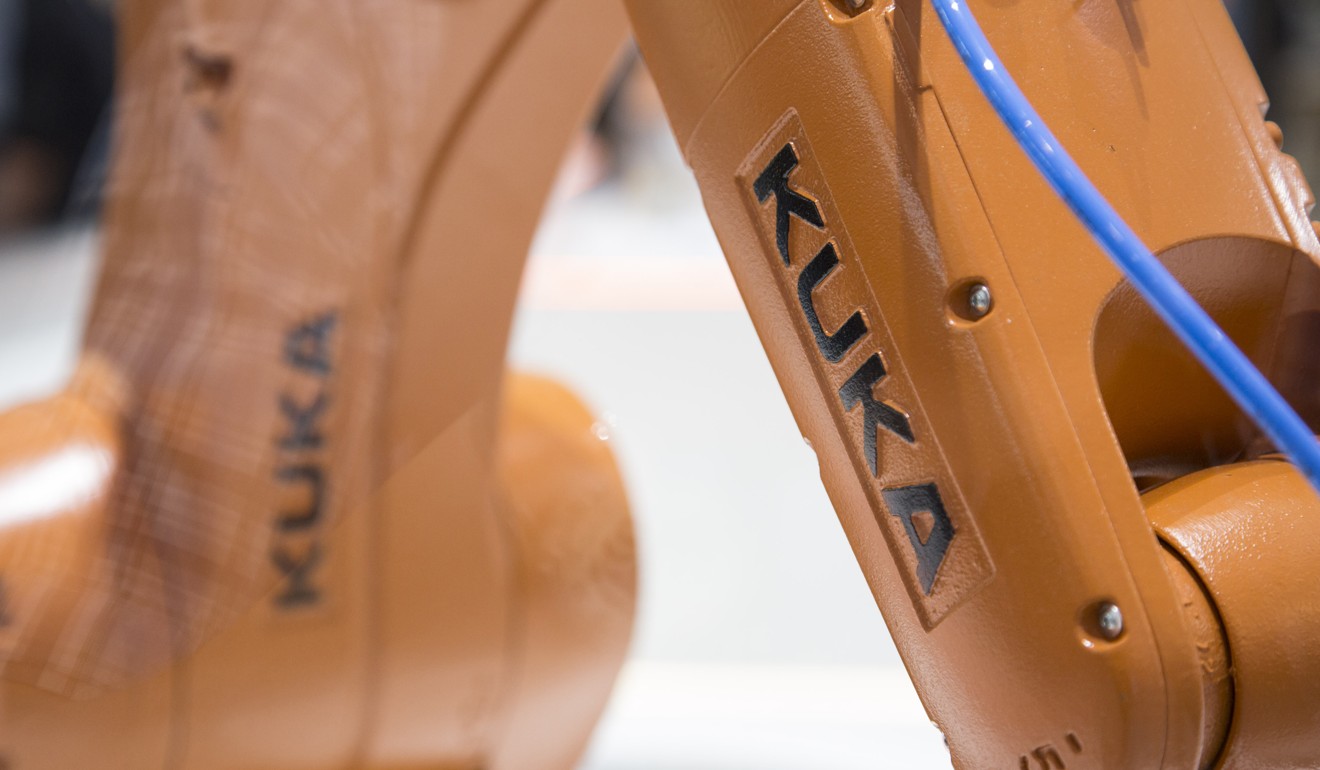
Belt and road plan shouldn’t be globalisation with Chinese characteristics, ambassador says
Berlin’s envoy also urges Beijing to end ‘unsustainable’ gap between level of access it grants foreign businesses and the free trade it benefits from abroad
Beijing should let other nations join its belt and road globalisation drive on an equal footing rather than it being a China-centric campaign, Germany’s ambassador to China said.
“We welcome the ‘Belt and Road Initiative’ because it strengthens globalisation. But it is globalisation with Chinese characteristics, meaning it’s a Sino-centric project,” Michael Clauss told the South China Morning Post, referring to the trade and infrastructure plan spanning Asia, Africa and Europe.
“We want to participate in developing this project on an equal basis.”
He also urged Beijing to push for greater progress on market reforms, warning that a lack of reciprocity in access between China and the European Union would be unsustainable.
Clauss, who represents Europe’s biggest manufacturing economy, called into question the sustainability of China’s economic model, saying too much Communist Party control would hinder China’s push to upgrade its manufacturing sector.
“We have heard a lot of promises, but apparently not much has been achieved in terms of actual implementation of reforms,” Clauss said.
China’s ruling party is set to hold a twice-a-decade congress later this month during which an announcement will be made on a new leadership line-up as well as the policy direction for President Xi Jinping’s second term in office.
The European Union Chamber of Commerce in China – which has said its companies have been “suffering from accumulated promise fatigue” from the Chinese authorities – is one of the foreign business groups urging Xi to follow up his anti-protectionism speech at the World Economic Forum in Davos in January with action by opening up the country’s market to foreign businesses and relaxing restrictive government policies.
Chinese buyouts of Europe’s critical and hi-tech businesses have become one of the most contentious issues among the bloc, in particular in Germany, France and Italy.

In Berlin, the takeover of German robot maker Kuka by China’s biggest home appliance maker Midea Group has stirred controversy amid fears that the country’s key technologies will fall into foreign hands, while China protects its own companies against offshore takeovers.
Last month, European Commission President Jean-Claude Juncker floated the proposal of screening foreign investments to avoid takeovers in Europe’s strategic sectors.
“Germany and the EU as a whole are in favour of free trade and we are completely open to foreign investments, including from China,” Clauss said. “However, there is little reciprocity on the Chinese side. There is now a growing debate in Europe about whether this lack of reciprocity is sustainable.
“No one expects full reciprocity overnight, but we would like to see China starting to move in this direction.”
While it would take time for the bloc to make a final decision on what to do, Clauss said “improvement on market access by the Chinese government was likely to influence this debate”.
Relations between Beijing and Brussels have become closer in the wake of US President Donald Trump’s criticism of Nato, his open support for Brexit, and his decision to withdraw from the Paris climate change agreement.

“China-EU relations have become more important recently,” Clauss said. “We share common interests, particularly on global issues such as combating climate change, support for a strong United Nations and a free global trade system based on WTO rules.”
He also said China’s reluctance to open up and its efforts to divide the European Union could prevent the two sides forming a closer partnership.
“For this trend to continue China will need to open up further. Lack of progress regarding market access or increasing restrictions in cyberspace have caused some doubts in this regard.”
Clauss said China had been able to maintain its economic success despite its tight control over state firms, private companies and markets, but it would need to make a much bigger push in opening up its economy as it moved to upgrade its manufacturing sector.
“China was picking the low-hanging fruits. But the difficulty will start now as it moves higher up the ladder into innovation and hi-tech industry,” he said.
The German diplomat said China’s economic success would increasingly depend on innovative technologies and business models as it pushed its “Made in China 2025” strategy to boost manufacturing and home-grown products.
“In light of this, many observers believe that the current balance between state and market forces leans too much towards the state and the party,” he said.
“According to the German experience an open and rules-based economic system is a prerequisite for economic success.”
The Communist Party has moved to strengthen its presence in business in recent months. Foreign companies have faced “political pressure” to revise the terms of their joint ventures with state-owned partners to allow the party final say over business operations and investment decisions, Reuters reported.
Party units are also being set up in private companies, and articles of association in state-owned enterprises’ Hong Kong-listed units altered to include explicitly the role of the party in management decisions, according to a report in the Financial Times.
Echoing German Foreign Minister Sigmar Gabriel’s call for China to follow a “one-Europe” policy, Clauss said “we expect China not to interfere with the decision-making process of the EU through individual member states”.
China has tried to draw smaller European nations into its orbit by forming the “16+1” platform created in 2012 for Beijing to discuss economic and political issues with the 16 states in Central and Eastern Europe, including both EU and non-EU states.
Such tactics have proven to be a success for Beijing. In June, Greece blocked an EU statement at the United Nations criticising China’s human rights record.
Last year, opposition from countries like Hungary and Greece prevented the EU from issuing a statement that directly criticised Beijing’s activities in the South China Sea after it lost a landmark case over a territorial dispute in an international court.

